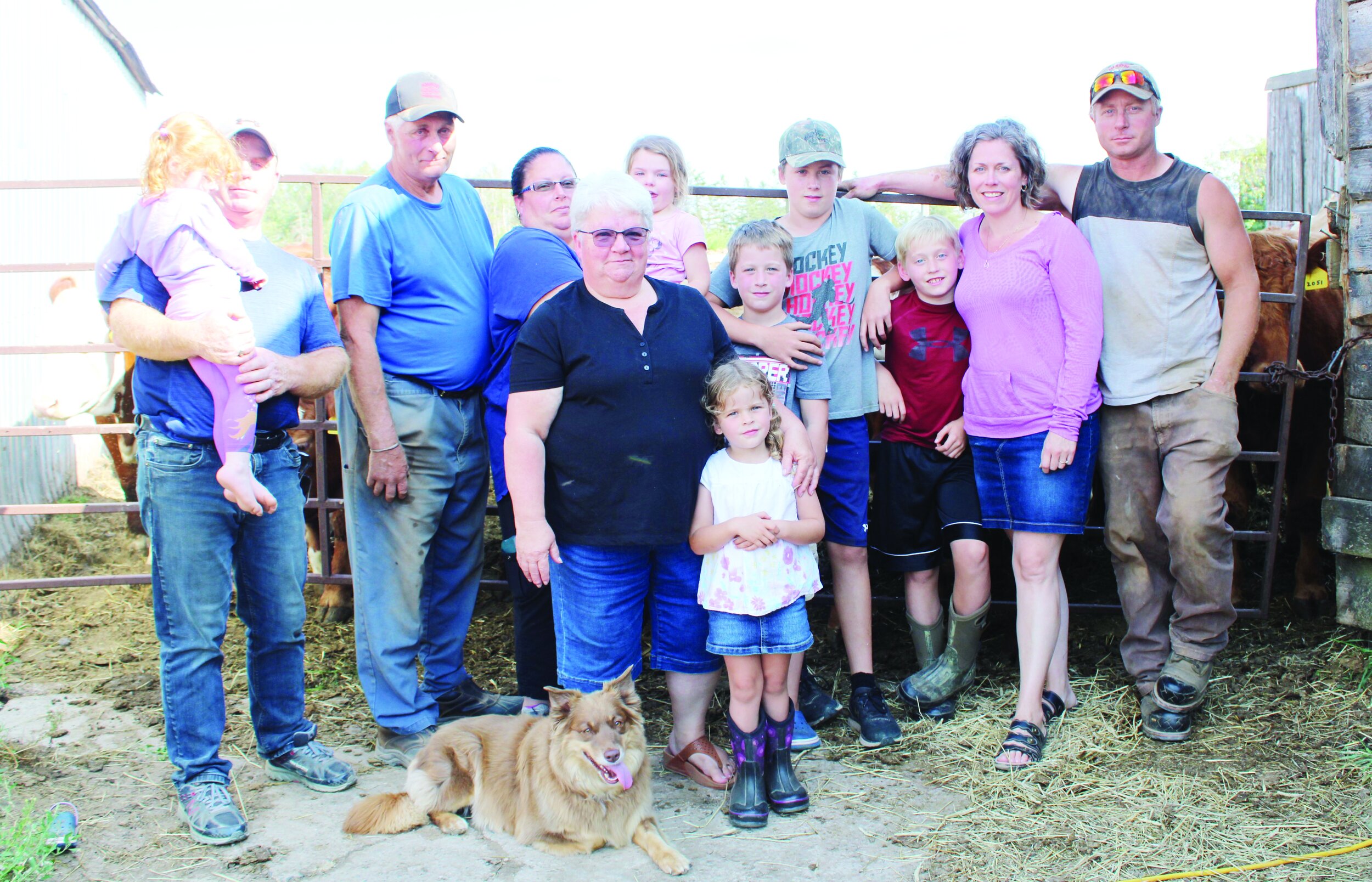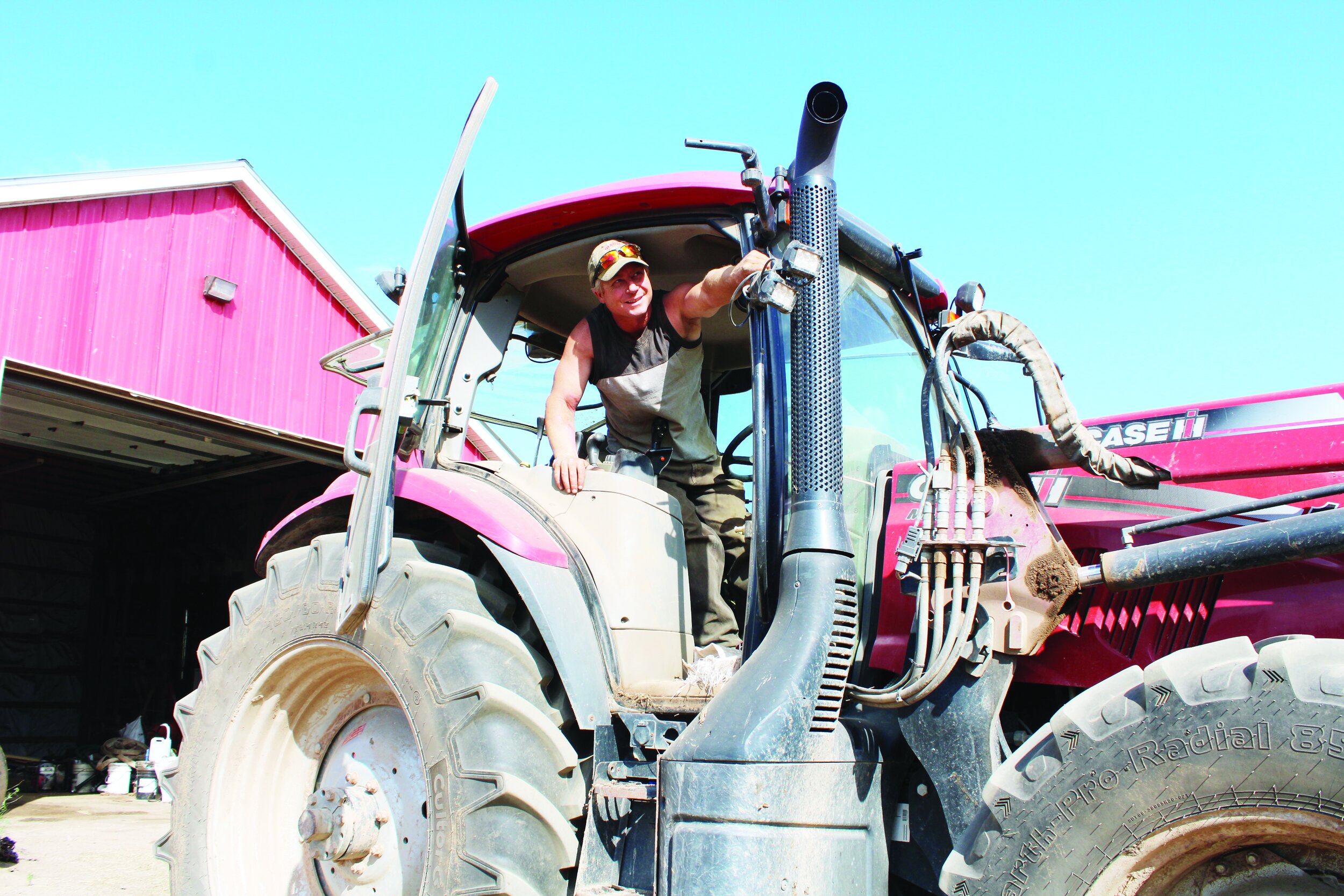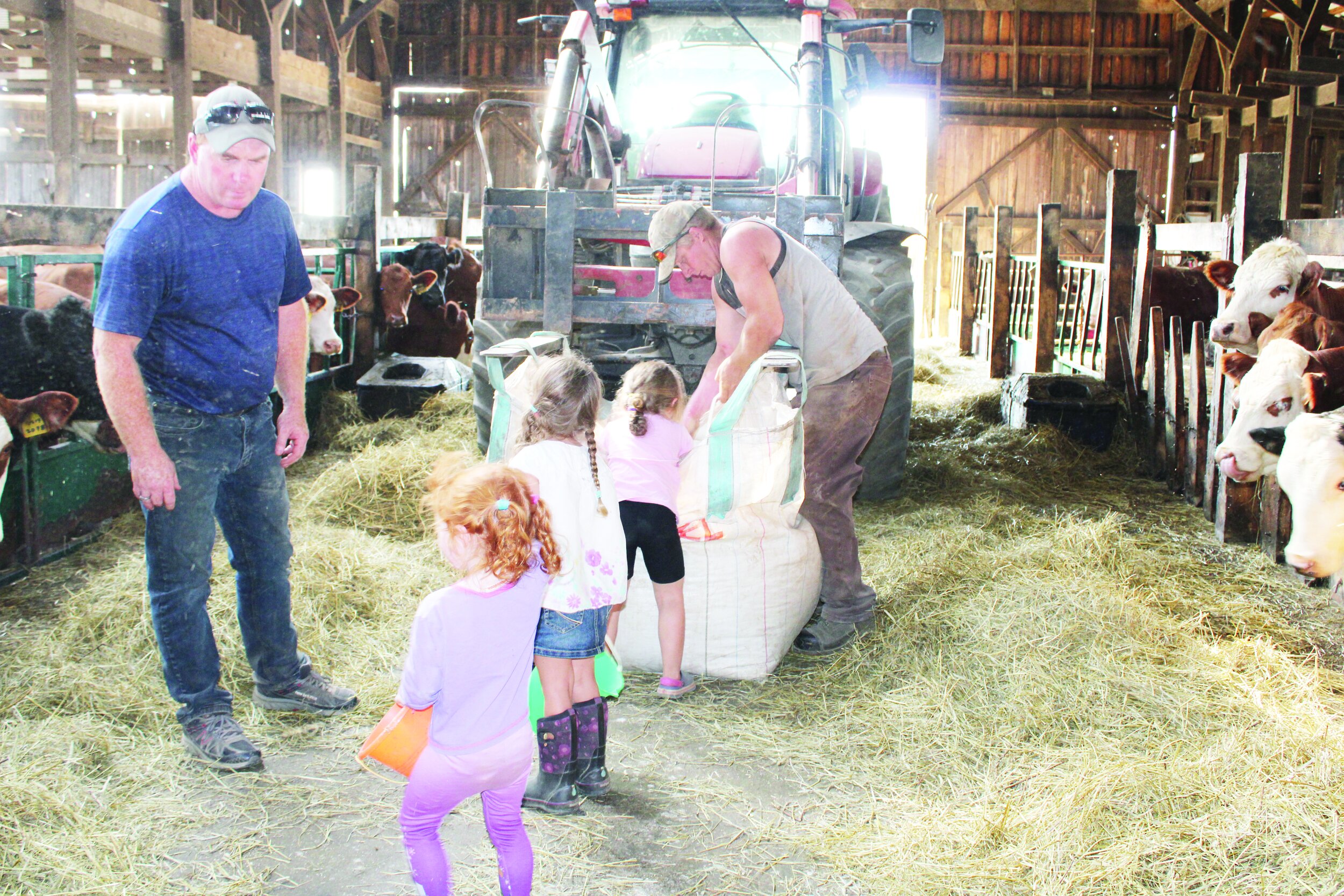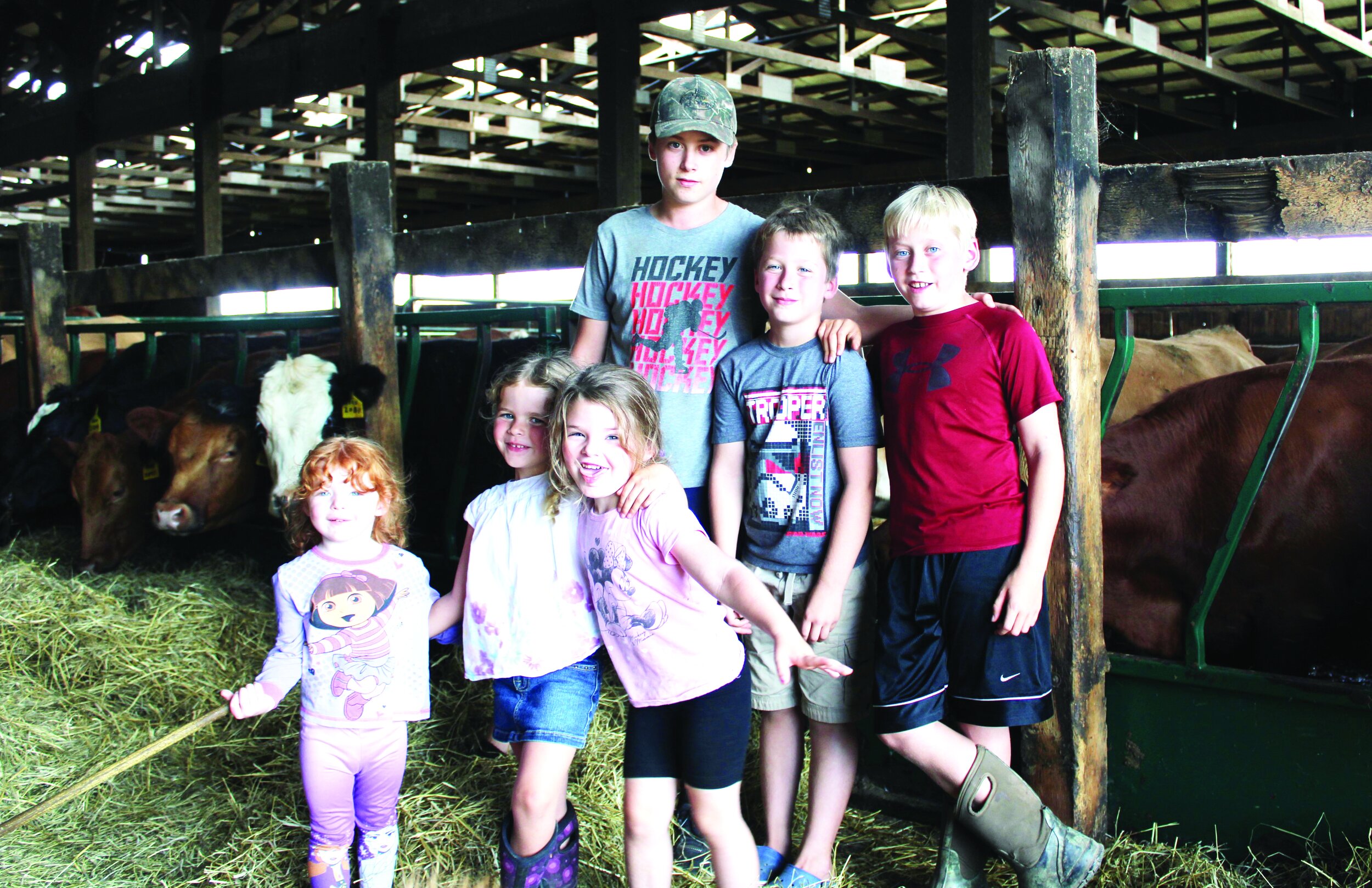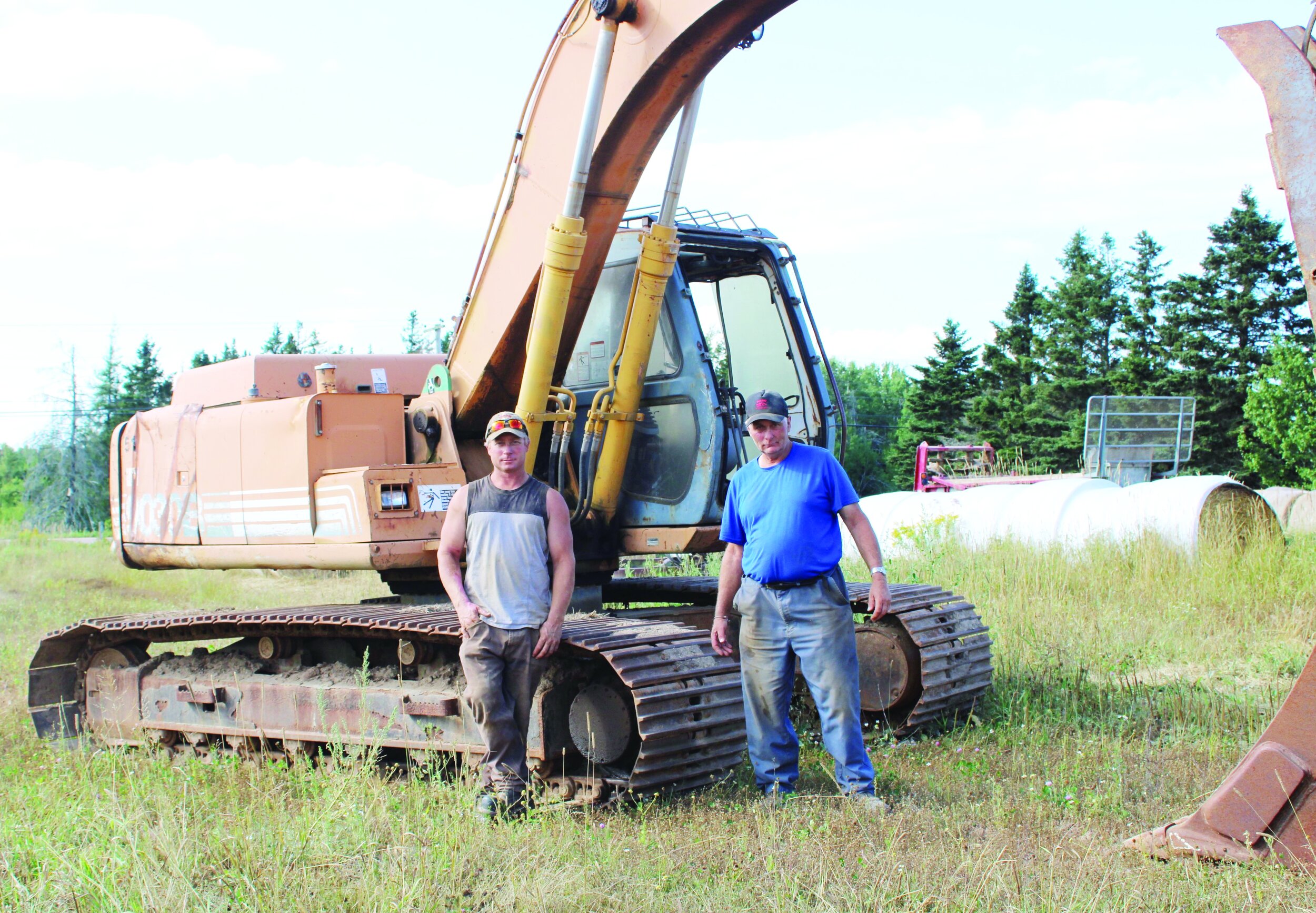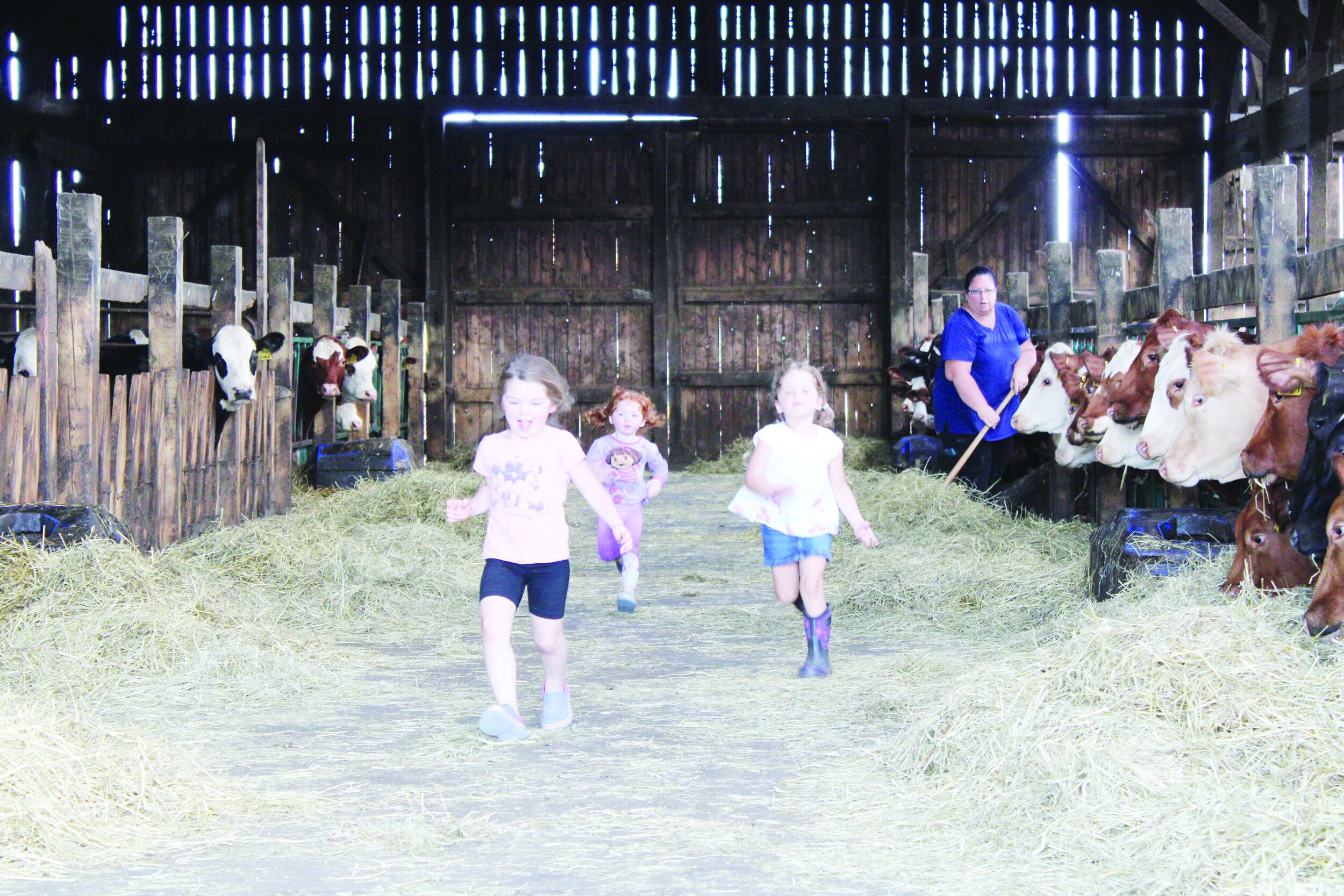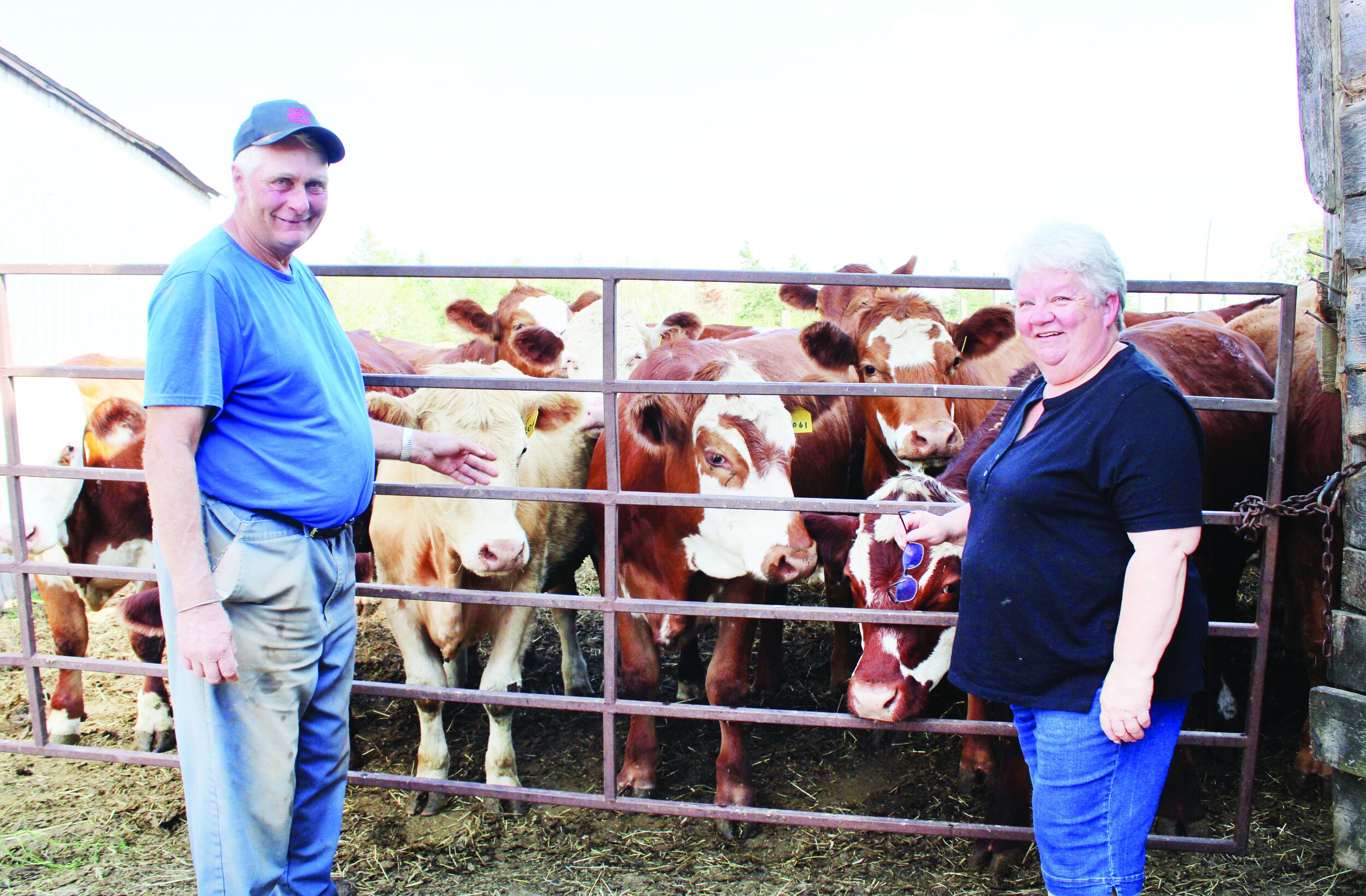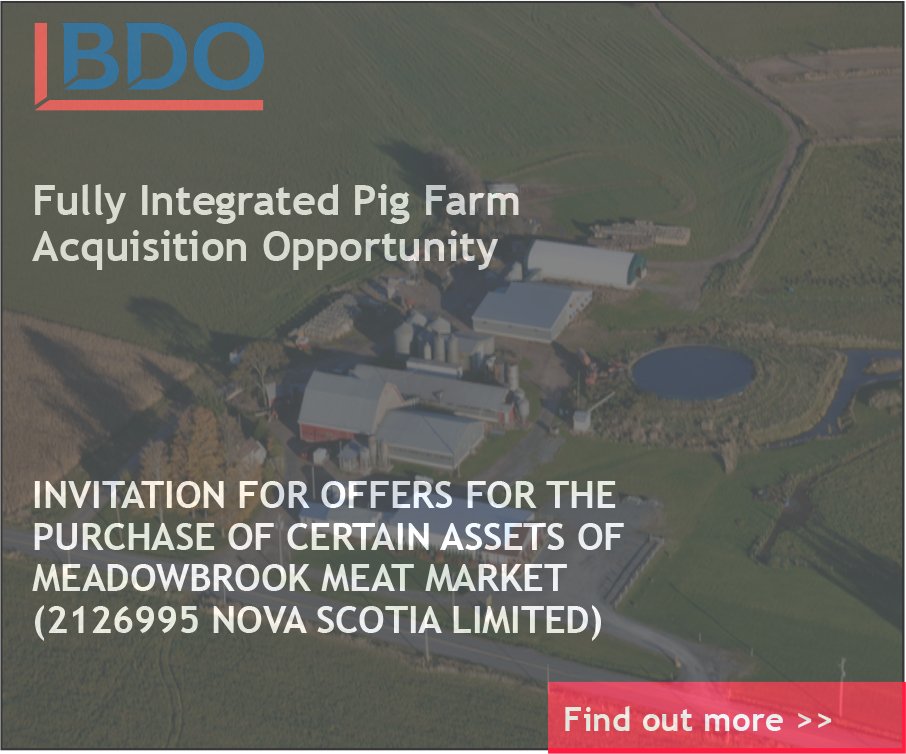Dixon family farmers see beef sales soar during pandemic
/by Joan LeBlanc
The three generations involved in the Dixon family farm in Point de Bute, N.B., are kept busy every day operating their multi-faceted business, which includes fresh beef sales at the farm gate known locally as Dixon’s Farm Fresh Beef. Despite this year’s challenges of heat, drought, and the COVID-19 pandemic, they plan to keep on farming.
It was back in 1973 that Roy Dixon brought his new bride Shelley to his childhood home, a small farm previously owned and operated by his parents, the late Walter and Ida Dixon.
Over the years, the couple and their family have worked to increase not only their acreage, but to expand the operation to include beef and forage crop production, as well as regional construction projects and heavy equipment operation.
Members of the family talked recently at the family homestead about the work they do and the enjoyment they derive from it as a family unit.
“My father was born in 1900,” said Roy. “I just had one brother, Walter, who was 20 years older than me. They had a small farm here and like most people at the time, they kept about six cows, a few pigs, worked the land, and threshed grain for neighbouring farmers. And every year, they bought 100 day-old chicks and then sold eggs. I guess they did a lot of things on the farm to make a living. Shelley and I bought this farm from them and they bought another one just down the road where our son Norman and his family now live.”
While their farm was growing, both Roy and Shelley worked off the farm.
“Roy decided he was going to go out on his own, so he started the construction business – which he still does – and continued farming on the side in his off time,” said Shelley with a grin.
ADDING ACREAGE
In time, the Dixons gradually increased their acreage, and today work more than 1,000 acres, a small portion of which is rented land. The main area is part of the original farm, while nearby land formerly belonging to other area farms, along with some rich Tantramar Marsh land, make up their holdings.
“Most all of our land is cleared, and we have a lot in pasture,” said Shelley.
The Dixons have two grown children, son Norman and daughter Heather. After also working off the farm for a number of years, daughter Heather Atkinson rejoined the family business. Her husband Kelvin works off the farm, but their two preschool girls, Karsyn and Charley, spend most of their days with their mother around the farm. The Dixon’s son Norman has worked on the family farm all of his life, while his wife Aimee works off-farm. Their four children, sons Adrian, Chase, and Mitchell, and daughter Maria spend lots of time around the farm with their father and grandparents.
“Adrian’s 13 now and most of the time he can do the work of a hired man,” his grandmother said proudly.
The family maintains a herd of about 375 crossbred Hereford-Simmental-Red Angus beef cattle, using their own four bulls for breeding. Cows calve year-round, which enables the Dixons to always provide their own farm-grown beef to their customers.
“The crossbreeding works for us and it produces the high-quality meat we’re happy with,” said Shelley.
The Dixons launched their farm gate sale of beef some years ago, using the services of a local abattoir and butcher. Customers buy both individual cuts of meat and whole sides and quarters. In addition to selling at the farm, the Dixons take part in the weekly Saturday morning farmers’ market in nearby Sackville and have their products available at a couple of local retail outlets.
PANDEMIC EFFECT
With the outbreak of the COVID-19 pandemic, their sales began to soar.
“When the pandemic hit, we had this huge influx of customers,” said Shelley. “It cleaned out our freezer stock and we had this big list of people wanting fresh meat and ground beef. The butcher couldn’t keep up, so we had to contract a second one, and it really put a dent in the herd numbers. But since then, we’ve been able to increase that, and things have levelled out a bit. But I think the pandemic has made people more interested in buying local food.”
It takes a lot of planning to ensure there’s always fresh beef available for customers, so with a background in administrative office work, Shelley is kept busy on the marketing end of the business.
The Dixons also grow all of their own forage to keep their herd fed, planting mainly alfalfa, clover, and timothy, which is processed and stored in hundreds of round bales. It’s all baled by Norman and wrapped by Heather. This spring, the family decided to plant 30 acres in barley, but the extreme heat hasn’t helped that crop.
“We haven’t grown grain for a long time, and I think we picked a bad year for it, what with very little rain,” said Roy in mid-August. “Some of the fields did good, but others are poor. It’s been so dry that the dust from the lime we spread is still there. It hasn’t had enough rain to absorb it.”
Norman and Heather both spend almost every day working on the farm, feeding cattle, running equipment, and doing all those things that just need to be done. Heather is happy to be able to take her girls with her in the tractor cab, and lately they’ve baled dozens of round bales.
“I left an office job and came back to work on the farm,” said Heather. “It’s what I wanted to do. I’ve always loved being on the farm and I didn’t want to have someone else caring for my children. We live close by so it’s easy to come and go when I need to.”
HEAT AND DROUGHT
Heather said that forage production has been impacted by the excessive heat and drought in the area this year.
“We did a first cut, but it’s been so dry the second growth is only a foot high,” she said in mid-August. “It costs a lot of money to run equipment on fields that have forage only high enough that you could cut it with a lawn mower.”
As well as planting and harvesting crops and helping with livestock, Norman also runs the equipment part of the business, operating bulldozers, excavators, and other machinery. He takes care of most of the maintenance and repair tasks around the farm.
In the more than 25 years that he’s worked with his parents, Norman said he’s seen a lot of changes, mainly in technology and the cost of production.
“The price of equipment and machinery keeps going up but the price of beef doesn’t,” he said. “And the extreme weather conditions – no rain and the heat. If these conditions continue in the coming years, we may have to move to other types of crops that are more adaptable to drier weather.”
The whole family agreed that they love what they do and plan to continue in the future. Not brought up on a farm herself, Norman’s wife Aimee has come to embrace the rural life and is supportive of her children’s love of it too.
“My children will know all about farm life, how important it is to grow good food,” said Aimee. “I’ll always encourage them to work on the farm, but it will definitely be their own decisions what they want to do in their future.”
TROUBLED TIMES
The Dixons have also had their share of troubles in the past. In 2013, part of the roof on their large livestock barn collapsed under the weight of heavy snow. And in 2014, a garage adjacent to their home was levelled by fire, destroying equipment and tools worth thousands of dollars.
“We were lucky the house wasn’t damaged in the fire,” said Shelley. “Our neighbours and friends were there to help, so we managed to get through it all.”
While the pandemic has changed some of the ways they carry out their retail business, Roy and Shelley believe it’s also changed the way people in general feel about family farms and supporting local businesses.
“There’s something to be said about knowing where your food comes from, especially in uncertain times,” said Shelley.
Roy and Shelley are both happy to have their family working with them on the farm, and even though it just might be time for Roy to begin winding down the farm work a bit, he grins and Shelley laughs when retirement is mentioned.
“Roy will never retire,” said Shelley. “What would he do with himself? As long as our family is here and interested in working the farm, we’ll continue to work along with them for as long as we can.”
